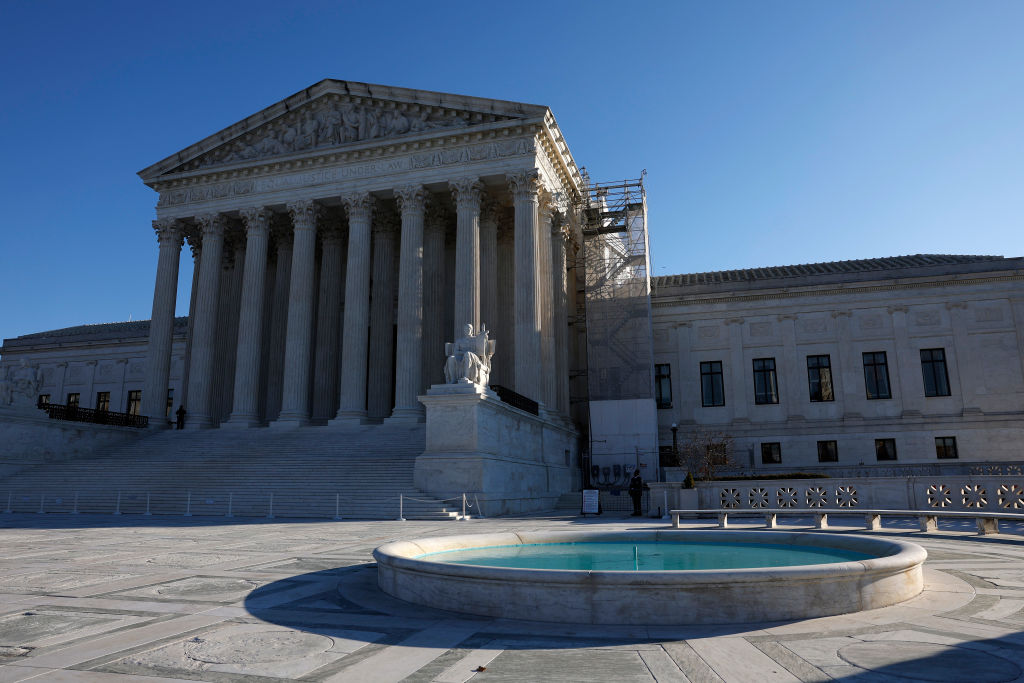Supreme Court does not act on Trump’s attempt to end birthright citizenship – for now


The Supreme Court did not act on Monday on the challenges to President Donald Trump’s Jan. 20 executive order seeking to end birthright citizenship – the guarantee of citizenship to almost everyone born in the United States. The court will likely consider the cases again at their private conference on Friday, Dec. 5; if it does, it could announce as soon as that afternoon whether it has granted review.
The court’s decision to reconsider the government’s petition for review at its next conference – a procedure known as a “relist” – is not an unusual one. When a case is relisted, it can signal one of a few different things. It could mean that one or more justices want to take a closer look at the case, or that a justice is trying to pick up a fourth vote to grant review. Especially when a case is relisted several weeks in a row (not yet the situation here), it may mean that a justice is writing an opinion about the court’s decision to deny review, or the court could be summarily reversing (that is, ruling in favor of the litigant seeking review without additional briefing or oral argument on the merits).
In the birthright citizenship cases, it seems very likely that yet another possibility could be in play.
Since 2014, the court has generally granted review only after it has relisted a case at least once. The court has never officially acknowledged this practice or provided any explanation for it, but the conventional wisdom is that the court uses the extra time provided by a relist to make sure that the case is a suitable one for its review. If that’s true here, as noted above, the court could announce as soon as Friday, Dec. 5, that it will hear the birthright citizenship cases on the merits. The cases would likely then be set for oral arguments in early 2026, with a decision to follow by late June or early July.
Under the order, which has never gone into effect, people born in the United States would not be automatically entitled to citizenship if their parents are in this country either illegally or temporarily. That order on birthright citizenship led to multiple lawsuits, in which federal judges temporarily barred the Trump administration from enforcing the order while litigation moved forward.
The Trump administration came to the Supreme Court in the spring, asking the justices to weigh in not on the legality of the president’s order but instead on the propriety of so-called “universal” or “nationwide” injunctions – orders by federal district courts that bar the government from enforcing a law or policy anywhere in the country. After the Supreme Court issued its ruling in late June, holding that district court judges generally cannot issue such orders, challenges to Trump’s order continued in the lower courts – and lower courts once again ruled for the challengers.
The Trump administration returned to the Supreme Court in September, asking the justices to review two rulings by lower courts. In Barbara v. Trump, a federal district judge in New Hampshire issued a preliminary injunction that barred the Trump administration from enforcing the executive order against a class of babies born on or after Feb. 20, 2025, who are or would be denied U.S. citizenship by Trump’s order. And in Trump v. Washington, a divided panel of the U.S. Court of Appeals for the 9th Circuit ruled that the executive order “is invalid because it contradicts the plain language of the Fourteenth Amendment’s grant of citizenship to ‘all persons born in the United States and subject to the jurisdiction thereof.’”
In its petition for review, the Trump administration argued that the 14th Amendment’s citizenship clause was “adopted to confer citizenship on the newly freed slaves and their children, not on the children of aliens temporarily visiting the United States or of illegal aliens.” The challengers and the lower courts cannot rely on the court’s 1898 decision in Wong Kim Ark, it contended, because the parents in that case lived permanently in the United States even if they weren’t U.S. citizens.
Opposing review, the challengers insisted that the Supreme Court has already decided, more than a century ago in Wong Kim Ark’s case, what the citizenship clause means. But in any event, they wrote, in 1940 (and again in 1952) Congress enacted a federal law that essentially codified the citizenship clause, and it did so with Wong Kim Ark in mind, so that Trump’s executive order also violates federal law.
Posted in Court News, Potential Merits Cases
Cases: Trump v. Washington, Trump v. Washington, Trump v. Barbara (Birthright Citizenship)